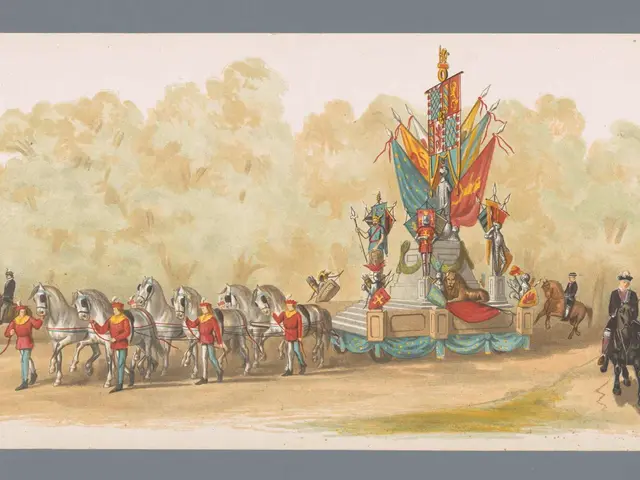EU Commission expresses worries over democratic principles in Hungary
The European Commission has voiced concerns over the rule of law in Hungary, particularly in light of a draft law that would restrict the foreign funding of non-governmental organizations and media. Michael McGrath, the EU Commissioner for Justice and Democracy, spoke about this issue in Brussels and views the law as a potential violation of EU law.
McGrath emphasized the need for the Hungarian government to withdraw the draft legislation and hinted that the Commission would utilize various tools to achieve this goal if necessary. He made these remarks before a gathering of EU foreign ministers, who are scheduled to meet soon.
The Hungarian government, headed by Prime Minister Viktor Orbán, has put forward a draft law that would prohibit Pride marches organized by the LGBTQ+ community. This proposal has raised concerns within the EU, as it may infringe upon fundamental rights and freedoms and potentially violate EU law.
In recent years, Hungary has faced mounting criticism from the EU concerning the rule of law and democratic principles. As a response, the European Parliament has initiated an Article 7 procedure against Hungary, a process that could result in Hungary losing its voting rights within the EU Council if a serious breach of EU founding values is proven.
While detailing the concerns, it is worth noting that international human rights organizations have also criticized Hungary's crackdown on civil society and independent media. The General Affairs Council has held hearings as part of the Article 7 procedure, underscoring the EU's commitment to upholding the rule of law in Hungary.
If passed, the law could face legal challenges in EU courts, and Hungary could potentially encounter financial consequences, including reduced access to EU funds. Additionally, the nation might experience increased diplomatic isolation within the EU, affecting its influence and participation in EU policies.
Yet, the Hungarian government argues that the law is necessary to maintain its sovereignty. In the meantime, the EU remains committed to protecting democratic values and human rights in Hungary.
- The European Commission's concern over Hungary's rule of law extends beyond the draft law on NGO and media funding, as it also voices disapproval of the proposed law prohibiting Pride marches organized by the LGBTQ+ community.
- The Hungarian government's policies, including those regarding employment, are under scrutiny by the EU, as they may infringe upon EU law and fundamental rights and freedoms.
- The EU's commitment to upholding the rule of law includes not only its engagement in policy-and-legislation matters but also its ongoing monitoring of war-and-conflicts, general-news, crime-and-justice, accidents, fires, and car-accidents within Hungary.
- The Hungarian government's stand on migration and politics, including its stance on employment policies, will be influenced if it faces diplomatic isolation within the EU, affecting its influence and participation in EU policies.
- International human rights organizations and the General Affairs Council, in response to Hungary's crackdown on civil society and independent media, view the nation's employment policies as potential violations of EU law and fundamental rights and freedoms.








